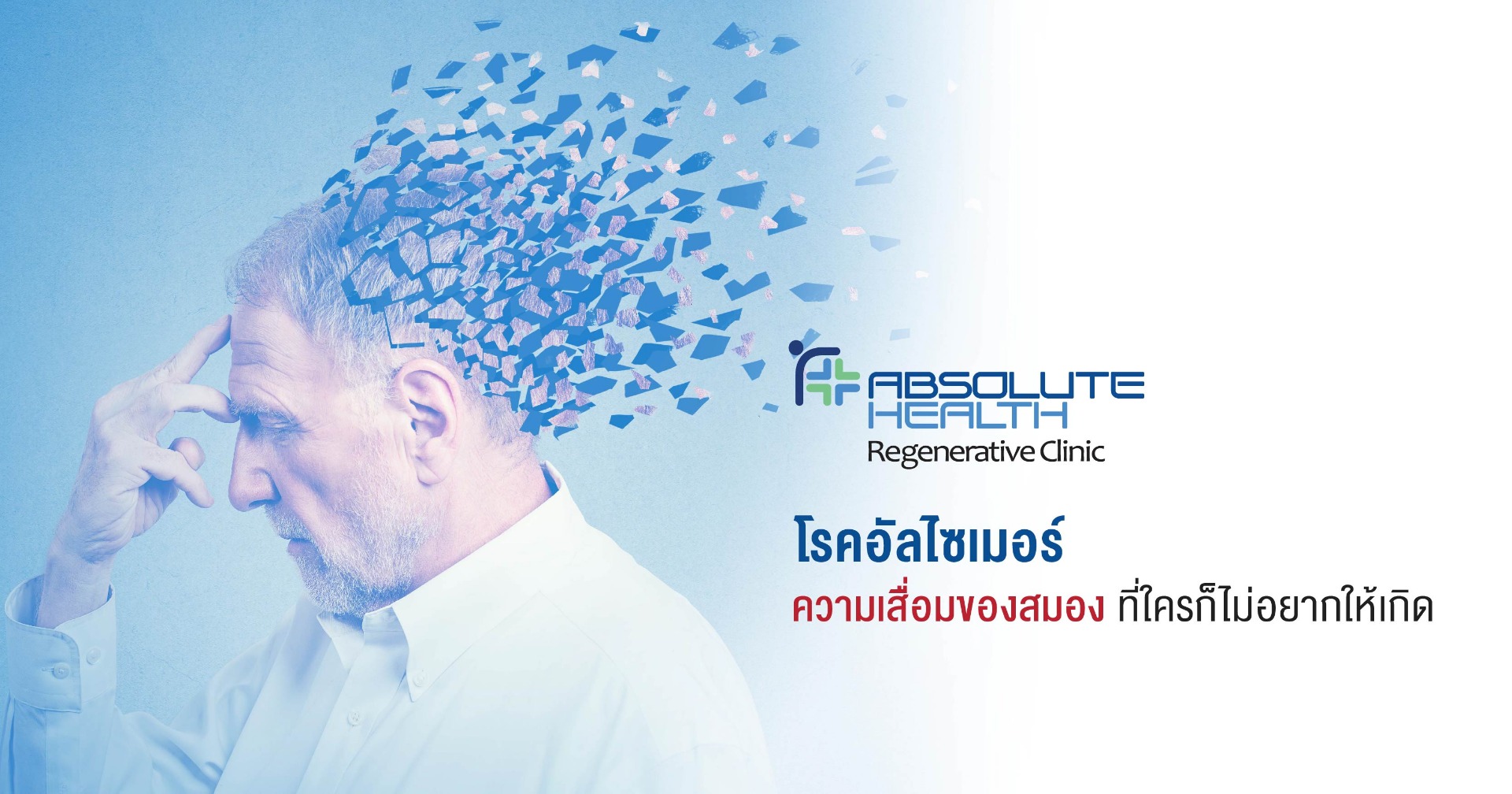
Alzheimer’s or dementia, it is considered to mostly be the degeneration of the central nervous system. There are studies to show that it occurs more often in females than in males. Many people would normally associate this disease with older folks who are absent-minded and at times gets confused of their own family members. Some people might think that being forgetful at old age is normal. Brain cells become old with age and therefore forgetfulness, becomes the nature of older people.
As a matter fact, Alzheimer’s can happen to young people too. For example, there is a 60-year-old female patient who has serious Alzheimer symptoms. She will go to the toilet every five minutes throughout the night because she forgets that she already has gone. Thus, Alzheimer’s can definitely have a physical, psychological and social impact on a person.
Another example is a case of a 58 years old patient. The patient mentioned, always has abdominal discomfort and wind issues because she does not remember if she has eaten and therefore, keeps asking for food every hour. After reassurance, she still would not believe her family members and in turn thinks that they are preventing her from eating.
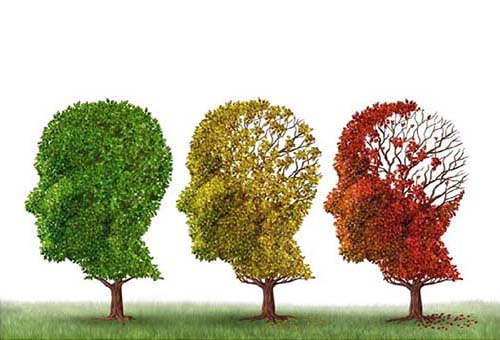
Early Signs and symptoms of Alzheimer’s (alz.org)
Memory loss that disrupts daily life may be a symptom of Alzheimer's or dementia. As mentioned above, Alzheimer's is a brain disease that causes a slow decline in memory, thinking and reasoning skills. Please find below 10 warning signs and symptoms:
-
Daily life disruptions due to memory lost
One of the most common signs of Alzheimer’s disease, especially in the early stage, is forgetting recently learned information. Others include forgetting important dates or events, asking for the same questions repeatedly and increasingly need to rely on family members for things they used to handle on their own.
-
Challenges in planning and solving problems
Sufferers may experience changes in their ability to develop and follow a plan or work with numbers. They may have trouble following a familiar recipes or keeping track of monthly bills. Concentration span also declines.
-
Difficulties in completing tasks that are familiar
Sufferers often find it hard to complete daily tasks. At times they may have trouble going to a familiar location, writing a grocery list or remembering the rules of a favorite game.
-
Having confusion of place and time
Losing track of dates, seasons and the passage of time is also common. They may have trouble understanding something if it is not happening immediately. They may even forget where they are or how they get to places.
-
Trouble understanding visual images and spatial relationships
Vision issues is also a sign of Alzheimer's. This may lead to difficulty with balance or trouble reading. They may also have problems judging distance and determining color or contrast and this will cause issues if driving.
-
Having issues in articulating words while speaking and writing
Following or joining a conversations might also prove to be difficult for sufferers. They may stop in the middle of a conversation and have no idea how to continue or they may repeat themselves. They may struggle with words or trouble naming a familiar object.
-
Losing the ability to retrace steps and misplacing things
At times things may be put in unusual places. They may lose things and unable to go back over their steps to find them again. They may accuse others of stealing, especially as the disease progresses.
-
Reduction in judgement abilities
They may experience changes in judgment or decision-making. For example, they may use poor judgment when dealing with money or pay less attention to personal grooming.
-
Keeping away from social activities and work responsibilities
Sufferers may experience changes in the ability to hold or follow a conversation. As a result, they may withdraw from hobbies, social activities or other engagements.
-
Mood and personality changes
They may also experience mood and personality changes. They can become confused, suspicious, depressed, fearful or anxious. They may be easily upset at home, with friends or when out of their
comfort zone.
What causes the symptoms?
The answer is the degeneration of brain cells called Cerebral Cortex. Sadly people with Alzheimer’s disease will experience degeneration to this part of the brain. As human, our brain are clearly considered to be the most developed as compared to other animals. We humans have the ability to memorize, plan, calculate, be rational and most importantly, have a conscience. Being touched by Alzheimer’s can definitely be a challenge. Apart from the above, please find other possible factors below:
1. Genetic and genetic code disorder
The brain cells will lose its balance in the function of the metabolic system. This includes eliminating waste from defective cells and degenerating brain cells prematurely.
2. Hormonal factors
It is found that gender hormones in both females and males are important to the function of brain cells. Females will normally enter the menopausal period faster than males. Hence, the reason why statistics shows its more often found in females.
3. Toxins and other chemicals
Studies have found that heavy metal toxins such as lead, mercury and aluminum can directly affect the degeneration of the Cerebral Cortex.
4. Malnutrition
Vitamin B deficiency, essential amino acids, essential fatty acids and minerals like magnesium and zinc, may cause the brain to degenerate faster.
5. Secondary conditions
Diabetes is considered to be another cause for Alzheimer’s. There is a saying that Alzheimer’s is diabetes that occurs in the brain because the brain cells cannot burn the energy normally.
6. Degeneration of blood vessel
This causes reduced blood circulation that flows to the brain.
7. Irritable Bowel Syndrome
Imbalance of microorganism species and microorganisms in the digestive tract is related with the synthesis of neurotransmitters and immune system.
Diagnosis of Alzheimer’s
Currently, doctors can perform diagnosis by asking for background information and examining the body and visible symptoms. Please find below some possible diagnosis methods:
- Risk screening
Tests for Alzheimer gene, thyroid hormone check, adrenal gland and gender hormones measures the free radical levels and toxins in the body. Other checks would be the vitamin and nutrient level in the body.
- Checking the congestion of beta-amyloid in the brain together with PET scan
Normally, people with Alzheimer’s often pass away within 6-10 years. It starts from having the symptoms due to gradually increasing degeneration of the brain until entering the period of disability, dependency and finally complications due to infections.

Advancement of Integrative Medicine for Alzheimer’s disease management
With medical advancement and the combination of knowledge from various medical sciences, we can now perform the risk screening for Alzheimer’s way before having the symptoms. Treatment plan can be made to match the specific individual, which emphasizes on solving the problem at its source. This is done by repairing the degenerated cells in order to resume its function by using various methods below:
1. The use of medication to treat the symptoms or adjust the neurotransmitters. However, there is no medication to correct the degeneration of brain cells.
2. The use of nutrient therapy that are extracted from ginkgo leaves, ginseng, green tea, cordyceps, choline in peanuts, Vitamin B, Vitamin D, amino taurine and magnesium can increase the efficiency of the neurotransmitters and brain.
3. The use of antioxidants to protect the brain cells, such as Vitamin E, Astaxanthin, Coenzyme Q10, or Alpha Lipoic Acid.
4. Adjustments through hormone balancing or the use of hormone replacement in menopausal females with risk of dementia, treatment by detoxifying the heavy metal toxins to reduce the accumulation of toxins, which is the cause of disease.
5. The use of CPT/FCT, biomolecules or Nucleic acid Therapy. For example: Cerebrolysin, which is a peptide that is extracted from pig brain. Comparative research regarding the use of these biomolecules have shown that they yield good results for Alzheimer treatment.
6. The use of low level near infrared laser therapy through acupuncture points around the skull to stimulate the function of nerve cells.
7. The use of the immunotherapy to adjust the balance of the immune system and reduce inflammation of brain cells.
In addition to medical treatments, advance Alzheimer’s patients should be closely monitored to prevent unnecessary danger to themselves. Occupational therapy such as talking, playing music or playing games together should be done regularly. This is in order to support both the body and mind function. Identification cards should be made with important contact details such as the patients’ next of kin and carried by the patients at all times. This can prevent patients from getting lost or disappearing from home.
Conclusion
In general, people often acknowledge that Alzheimer’s is a disease with no clear cause which may be related to genetics. However, with integrative medicine, we have always emphasized that the key factor for Alzheimer’s is not only genetics but also more importantly, factors such as food consumption, environment, toxins and lifestyle. At the same time as the saying goes, “prevention is better than cure”. We can and must take preventive steps as not to be a part of the statistics. Having good health and living a healthy life is something that you can choose.
Alzheimer’s or dementia, it is considered to mostly be the degeneration of the central nervous system. There are studies to show that it occurs more often in females than in males. Many people would normally associate this disease with older folks who are absent-minded and at times gets confused of their own family members. Some people might think that being forgetful at old age is normal. Brain cells become old with age and therefore forgetfulness, becomes the nature of older people.
As a matter fact, Alzheimer’s can happen to young people too. For example, there is a 60-year-old female patient who has serious Alzheimer symptoms. She will go to the toilet every five minutes throughout the night because she forgets that she already has gone. Thus, Alzheimer’s can definitely have a physical, psychological and social impact on a person.
Another example is a case of a 58 years old patient. The patient mentioned, always has abdominal discomfort and wind issues because she does not remember if she has eaten and therefore, keeps asking for food every hour. After reassurance, she still would not believe her family members and in turn thinks that they are preventing her from eating.
Early Signs and symptoms of Alzheimer’s (alz.org)
Memory loss that disrupts daily life may be a symptom of Alzheimer's or dementia. As mentioned above, Alzheimer's is a brain disease that causes a slow decline in memory, thinking and reasoning skills. Please find below 10 warning signs and symptoms:
11.Daily life disruptions due to memory lost
One of the most common signs of Alzheimer’s disease, especially in the early stage, is forgetting recently learned information. Others include forgetting important dates or events, asking for the same questions repeatedly and increasingly need to rely on family members for things they used to handle on their own.
12.Challenges in planning and solving problems
Sufferers may experience changes in their ability to develop and follow a plan or work with numbers. They may have trouble following a familiar recipes or keeping track of monthly bills. Concentration span also declines.
13.Difficulties in completing tasks that are familiar
Sufferers often find it hard to complete daily tasks. At times they may have trouble going to a familiar location, writing a grocery list or remembering the rules of a favorite game.
14.Having confusion of place and time
Losing track of dates, seasons and the passage of time is also common. They may have trouble understanding something if it is not happening immediately. They may even forget where they are or how they get to places.
15.Trouble understanding visual images and spatial relationships
Vision issues is also a sign of Alzheimer's. This may lead to difficulty with balance or trouble reading. They may also have problems judging distance and determining color or contrast and this will cause issues if driving.
16.Having issues in articulating words while speaking and writing
Following or joining a conversations might also prove to be difficult for sufferers. They may stop in the middle of a conversation and have no idea how to continue or they may repeat themselves. They may struggle with words or trouble naming a familiar object.
17.Losing the ability to retrace steps and misplacing things
At times things may be put in unusual places. They may lose things and unable to go back over their steps to find them again. They may accuse others of stealing, especially as the disease progresses.
18.Reduction in judgement abilities
They may experience changes in judgment or decision-making. For example, they may use poor judgment when dealing with money or pay less attention to personal grooming.
19.Keeping away from social activities and work responsibilities
Sufferers may experience changes in the ability to hold or follow a conversation. As a result, they may withdraw from hobbies, social activities or other engagements.
20.Mood and personality change
They may also experience mood and personality changes. They can become confused, suspicious, depressed, fearful or anxious. They may be easily upset at home, with friends or when out of their
comfort zone.

What causes the symptoms?
The answer is the degeneration of brain cells called Cerebral Cortex. Sadly people with Alzheimer’s disease will experience degeneration to this part of the brain. As human, our brain are clearly considered to be the most developed as compared to other animals. We humans have the ability to memorize, plan, calculate, be rational and most importantly, have a conscience. Being touched by Alzheimer’s can definitely be a challenge. Apart from the above, please find other possible factors below:
1. Genetic and genetic code disorder
The brain cells will lose its balance in the function of the metabolic system. This includes eliminating waste from defective cells and degenerating brain cells prematurely.
2. Hormonal factors
It is found that gender hormones in both females and males are important to the function of brain cells. Females will normally enter the menopausal period faster than males. Hence, the reason why statistics shows its more often found in females.
3. Toxins and other chemicals
Studies have found that heavy metal toxins such as lead, mercury and aluminum can directly affect the degeneration of the Cerebral Cortex.
4. Malnutrition
Vitamin B deficiency, essential amino acids, essential fatty acids and minerals like magnesium and zinc, may cause the brain to degenerate faster.
5. Secondary conditions
Diabetes is considered to be another cause for Alzheimer’s. There is a saying that Alzheimer’s is diabetes that occurs in the brain because the brain cells cannot burn the energy normally.
6. Degeneration of blood vessel
This causes reduced blood circulation that flows to the brain.
7. Irritable Bowel Syndrome
Imbalance of microorganism species and microorganisms in the digestive tract is related with the synthesis of neurotransmitters and immune system.

Diagnosis of Alzheimer’s
Currently, doctors can perform diagnosis by asking for background information and examining the body and visible symptoms. Please find below some possible diagnosis methods:
- Risk screening
Tests for Alzheimer gene, thyroid hormone check, adrenal gland and gender hormones measures the free radical levels and toxins in the body. Other checks would be the vitamin and nutrient level in the body.
- Checking the congestion of beta-amyloid in the brain together with PET scan
Normally, people with Alzheimer’s often pass away within 6-10 years. It starts from having the symptoms due to gradually increasing degeneration of the brain until entering the period of disability, dependency and finally complications due to infections.
Advancement of Integrative Medicine for Alzheimer’s disease management
With medical advancement and the combination of knowledge from various medical sciences, we can now perform the risk screening for Alzheimer’s way before having the symptoms. Treatment plan can be made to match the specific individual, which emphasizes on solving the problem at its source. This is done by repairing the degenerated cells in order to resume its function by using various methods below:
1. The use of medication to treat the symptoms or adjust the neurotransmitters. However, there is no medication to correct the degeneration of brain cells.
2. The use of nutrient therapy that are extracted from ginkgo leaves, ginseng, green tea, cordyceps, choline in peanuts, Vitamin B, Vitamin D, amino taurine and magnesium can increase the efficiency of the neurotransmitters and brain.
3. The use of antioxidants to protect the brain cells, such as Vitamin E, Astaxanthin, Coenzyme Q10, or Alpha Lipoic Acid.
4. Adjustments through hormone balancing or the use of hormone replacement in menopausal females with risk of dementia, treatment by detoxifying the heavy metal toxins to reduce the accumulation of toxins, which is the cause of disease.
5. The use of CPT/FCT, biomolecules or Nucleic acid. For example: Cerebrolysin, which is a peptide that is extracted from pig brain. Comparative research regarding the use of these biomolecules have shown that they yield good results for Alzheimer treatment.
6. The use of low level near infrared laser therapy through acupuncture points around the skull to stimulate the function of nerve cells.
7. The use of the immunotherapy to adjust the balance of the immune system and reduce inflammation of brain cells.
In addition to medical treatments, advance Alzheimer’s patients should be closely monitored to prevent unnecessary danger to themselves. Occupational therapy such as talking, playing music or playing games together should be done regularly. This is in order to support both the body and mind function. Identification cards should be made with important contact details such as the patients’ next of kin and carried by the patients at all times. This can prevent patients from getting lost or disappearing from home.
Conclusion
In general, people often acknowledge that Alzheimer’s is a disease with no clear cause which may be related to genetics. However, with integrative medicine, we have always emphasized that the key factor for Alzheimer’s is not only genetics but also more importantly, factors such as food consumption, environment, toxins and lifestyle. At the same time as the saying goes, “prevention is better than cure”. We can and must take preventive steps as not to be a part of the statistics. Having good health and living a healthy life is something that you can choose.


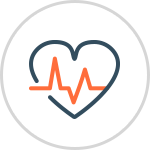

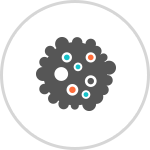

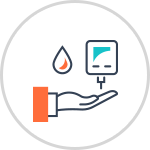
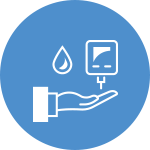
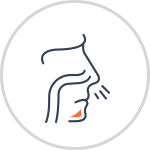

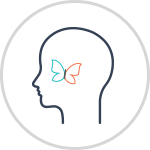
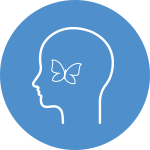
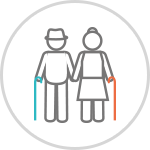

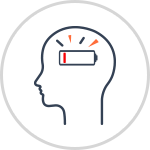
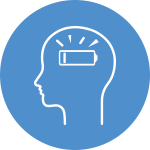
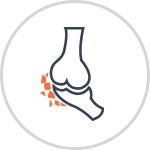
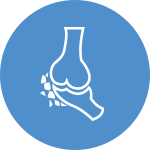


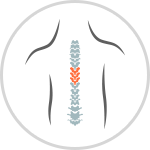
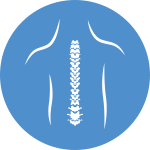
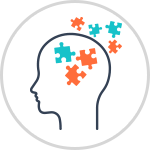
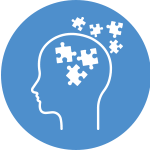
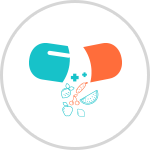


Sign In
Create New Account